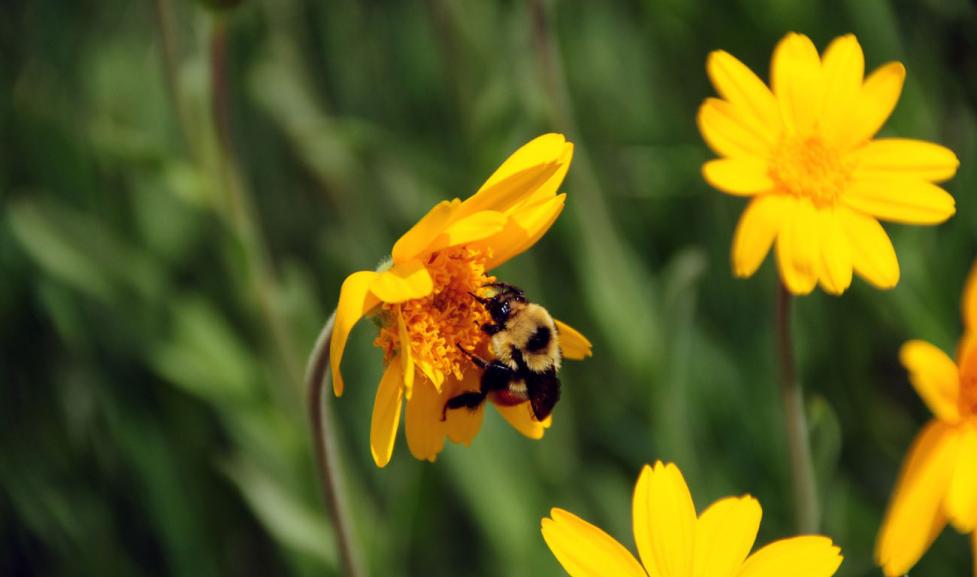While urban areas contain roads, buildings, and utility infrastructure, cities also share some of the attributes of natural areas such as creeks, plants, animals and other living things. High-quality urban landscapes provide multiple benefits to people. Trees and other plants provide shade and temperature control, improve air and water quality, absorb stormwater runoff, and cycle carbon from the air into soils and living systems. By incorporating diverse native plants, we can rewild landscapes that support our wild pollinators and other beneficial insects - the foundations of thriving food webs that support life.
Connections - With Nature and with Each Other
Habitat fragmentation keeps insects and wildlife from moving between habitat patches. How do we address this issue? Every patch of native plants that each of us grows in our yards, schools, businesses, and public spaces adds up, and working together, we can transform the city to support life by creating pathways of connected habitat.
Would you like to connect with others and take action to protect our living world, and create biodiverse habitat? Visit Cool Boulder to learn how you can get involved.
Pollinator Gardens
Pollinators need the same things as other animals - food, water, nesting sites to rear their young and safe, poision-free spaces.
On this page, you’ll find tips, plant lists and other information to help you get started.
